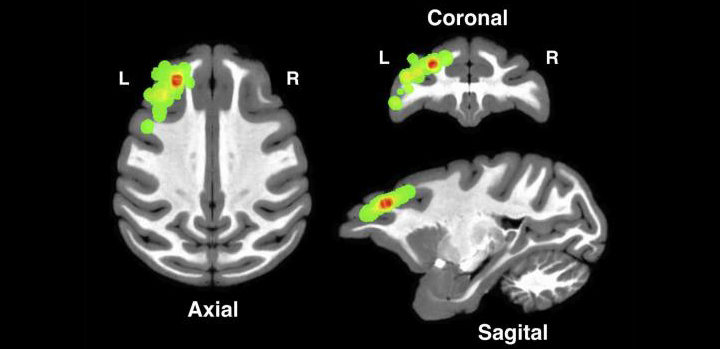Study shows where in the brain primates log correct outcomes; findings could improve TBI care.
When you do something right, you can’t learn anything from your success without a system in the brain for assigning credit to whatever action led to the desired outcome.
Say, for instance, you’ve forgotten which of your 10 usual passwords logs you into a favorite website. When you finally enter the right one, your brain should have a mechanism for noting which one led to that success. You have such a mechanism, of course, and now a study in non-human primates is the first to directly pinpoint it at work in the dorsolateral prefrontal cortex.
The new findings in the Journal of Neuroscience not only add insight into how the brain works, but also could lead to improvements in the care of patients who suffer traumatic brain injuries that affect the area, says lead author Wael Asaad, MD, PhD, an assistant professor of neurosurgery at the Warren Alpert Medical School and a neurosurgeon at Rhode Island Hospital.
Positioned on the brain’s surface behind the top of the forehead, the dorsolateral prefrontal cortex (dPFC) is in a vulnerable place. The long-term impairments that can result from the traumatic brain injuries he treats in the operating room are what motivate Asaad’s research, he says.
“The frontal lobes are sites where you often find traumatic hemorrhages that lead to all kinds of problems in these people’s lives in the future, and many of those problems have to do with poor decision making,” says Asaad, who is affiliated with the Brown Institute for Brain Science. “Our hypothesis was that this part of the brain is responsible for trying to figure out why things happen the way they did and linking causes and effects so that you can make better choices in the future.”
Continue reading here.




